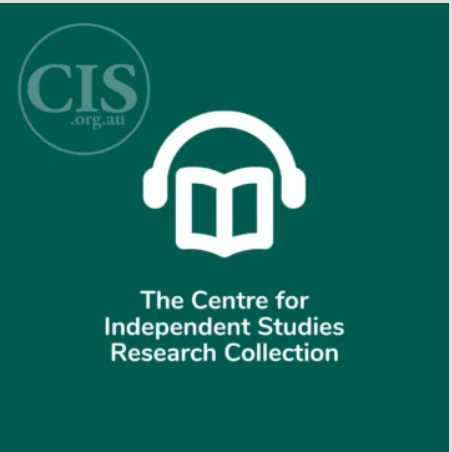
What is the Science of Learning? By Trisha Jha.
Centre for Independent Studies
Shownotes Transcript
What is the Science of Learning? By Trisha Jha.
Listen to all our research here: https://cisresearch.podbean.com/)
Despite billions of additional experts and concerted efforts at reforming several pillars of the Australian education ecosystem, students’ results continue to plateau. While the focus on teaching quality and effective, evidence-based practices is welcome, it is incomplete. Australian education needs to position the science of learning as the foundation for policy and practice.
The establishment of the Australian Education Research Organisation (AERO) — in particular its recent work How students learn best — and the Strong Beginnings report into initial teacher education reforms are important because they create space for shifting focus towards the science of learning.
Unfortunately, key pillars of Australian education policy do not reflect the science of learning, due to the far-reaching impacts of progressive educational beliefs dating back to the 18th century.
These beliefs include that:
Students learn best when they themselves guide their learning and it aligns with their interest;
Rote learning is harmful;
Learning should be based on projects or experiences, and that doing this will result in critical and creative thinkers.
But these beliefs are contradicted by the science of learning, which is the connection between: 1) insights from cognitive science and educational psychology; and 2) the teaching practices supported (and not supported) by those insights. Key concepts include:
Biologically primary knowledge (BPK) and biologically secondary knowledge (BSK): These concepts are not about stages of schooling. Rather, BPK includes things like basic social relations and problem-solving skills we have evolved to learn and do not need to be taught. In contrast, BSK includes foundational skills — like reading, writing, maths as well as coding, Cubism and how to kick a football (what schools are for) — we can only learn through instruction;
Domain-specific and domain-general skills: domain-general skills overlap with biologically-primary knowledge but critical thinking and analysis are specific to domains such as maths, history etc;
Working memory and long-term memory: working memory is severely limited and can only handle small amounts of new information; making it a funnel to long-term memory. A strong long-term memory can help strengthen working memory; and
Cognitive load theory: given these models of human cognition, teachers should design instruction to optimise the burden on working memory in a way that best helps learning.
The teaching approach best supported by the evidence is explicit instruction of a well-sequenced, knowledge-focused curriculum. Some key features of explicit instruction include:
Careful ordering of curriculum content so that new information and concepts are built sequentially;
Explanation of new information in small steps, taught through modelling and worked examples, with student practice after each step;
Asking questions and checking for all students’ understanding of what has been taught before gradual release of students for independent work and more complex tasks; and
Regular review of previous content to ensure retention.
There are many implications for the science of learning:
For teachers, it is an opportunity to design instruction in a way that is likely to lead to most students’ success with learning;
Parents can become more informed about how their child will learn best and more empowered when selecting or having conversations with their child’s school; and
For policymakers, it provides a foundation for future reform of policy at all levels.
Read the paper here: https://www.cis.org.au/publication/what-is-the-science-of-learning/